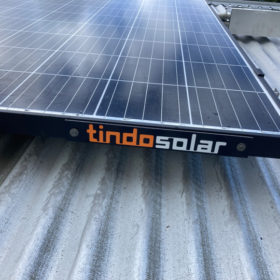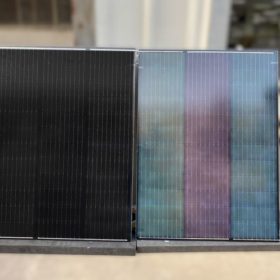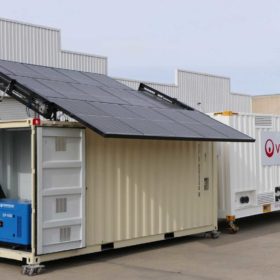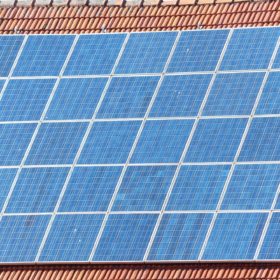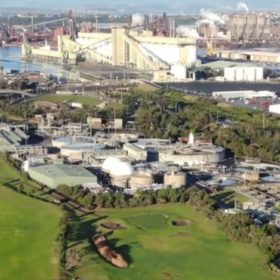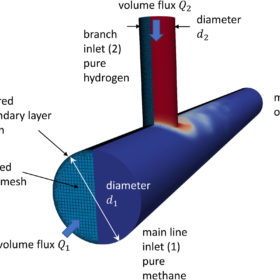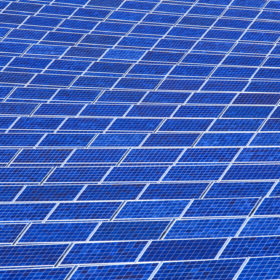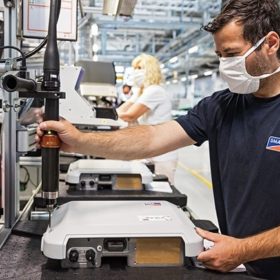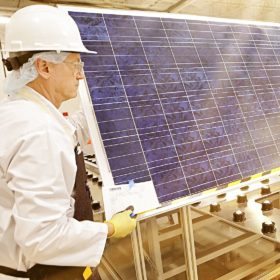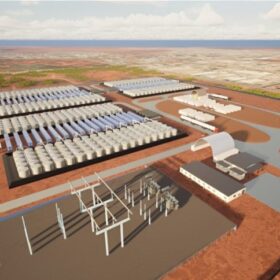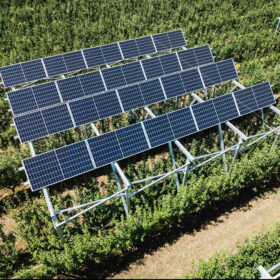Tindo unveils Australian-made 410 W solar panel with 20.6% efficiency
Australian module manufacturer Tindo Solar has unveiled a new solar panel based on M10 wafers for residential and business rooftop systems. The new addition to the company’s Karra range has a rated power of 410 W at 20.6% module efficiency and 23.1% cell efficiency.
Research team unveils high-efficiency coloured BIPV panels
Researchers in China have reported a colourisation strategy for solar based on photonic glass. They created solar panels that took on blue, green, and purple hues, while only dropping the efficiency of power generation from 22.6% to 21.5%.
Magnis Energy begins production at US battery ‘gigafactory’
Sydney-based lithium-ion battery specialist Magnis Energy Technologies has begun commercial production of full-sized cells at its manufacturing plant in the United States with plans to increase production to 38 GWh of battery cell capacity per year by the end of the decade.
The growing demand for off-grid leads to compact, pre-wired systems
With headlines dominated by spiking electricity prices and energy security, the demand for off grid solutions in Australia is booming. “It’s starting to make financial sense, that’s significant,” Matt Miller, the marketing manager for Victorian company Commodore tells pv magazine Australia.
More than 3 GW of solar panels held by US customs under forced labor law
ROTH Capital Partners reports 3 GW have been seized under enforcement of the Uyghur Forced Labor Prevention Act.
Shell pulls back from Port Kembla hydrogen hub
Less than a year after agreeing to work with Australian steel company BlueScope, Shell is now stepping back from the plan develop a pilot-scale 10 MW green hydrogen electrolyser at the Port Kembla Steelworks and further the vision for a hydrogen hub in the Illawarra.
Traditional hydrogen blending could damage gas pipelines, say researchers
UK researchers have revealed that gaseous hydrogen could cause problems in natural gas pipelines, while electrolyser manufacturer Nel has announced plans to build a second production line in Norway.
China’s green finance market topped $4 billion in H1
Deutsche Bank has revealed that China’s green finance market surpassed CNY 20 trillion (AU$4.07 billion) in value in the first half of 2022. Haitai Solar has listed shares in Beijing, while Shangji has revealed plans for a new polysilicon project in Inner Mongolia.
Supply chain difficulties translate into losses for SMA
SMA’s Home Solutions segment was particularly badly hit as the PV inverter manufacturer struggled to meet the demand due to the shortage of materials. The sales and results in the first half of 2022 were therefore significantly worse than in 2021. The company now wants to take “a series of measures to improve its long-term ability to deliver.”
Canadian Solar to build new Qinghai production base
Canadian Solar has announced plans to invest in a new solar production base in Qinghai province, while Boamax Technologies has revealed that it will build a new heterojunction solar cell and module factory in Anhui province.
